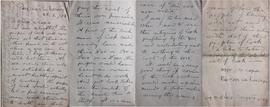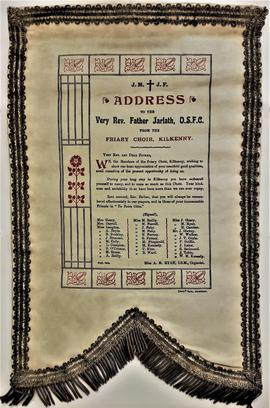Correspondence relating to the transfer of properties on Church Street (nos. 155-157) to lay trustees of the Catholic Boys’ Brigade. Correspondents include, Thomas J. Furlong, solicitor, 11 Eustace Street, Dublin, Fr. Fiacre Brophy OSFC, Fr. Paul Neary OSFC, Provincial Minister, William Mooney & Son, solicitors, 16 Fleet Street, Dublin, Michael Murphy, solicitor, 44 South Mall, Cork, and John Jameson, Bow Street Distillery, Dublin. Most of the correspondence relates to instructions to be given to solicitors with respect to the drawing up of a conveyance for the above-mentioned properties and to the need for approval of the deed which allows Fr. Matthew O’Connor OSFC and Fr. Peter Bowe OSFC to retire from their trusteeship. John Jameson assured Fr. Fiacre that ‘this company would be very reluctant to put up a building that would be objectionable to your community. … I thought there was no likelihood of the neighbourly relations which have always existed between this company and yourselves being interrupted’. On 20 Dec. 1904 Fr. Paul Neary OSFC stated that the ‘members of our Order who are trustees of the Church Street premises of the Boys’ Brigade have no desire to continue their trusteeship and are willing to hand it to any persons to whom they can do so, without breach of their trust’.


